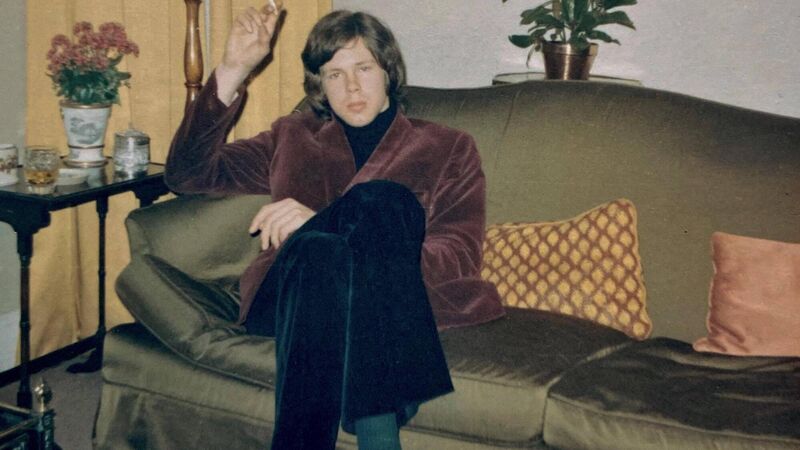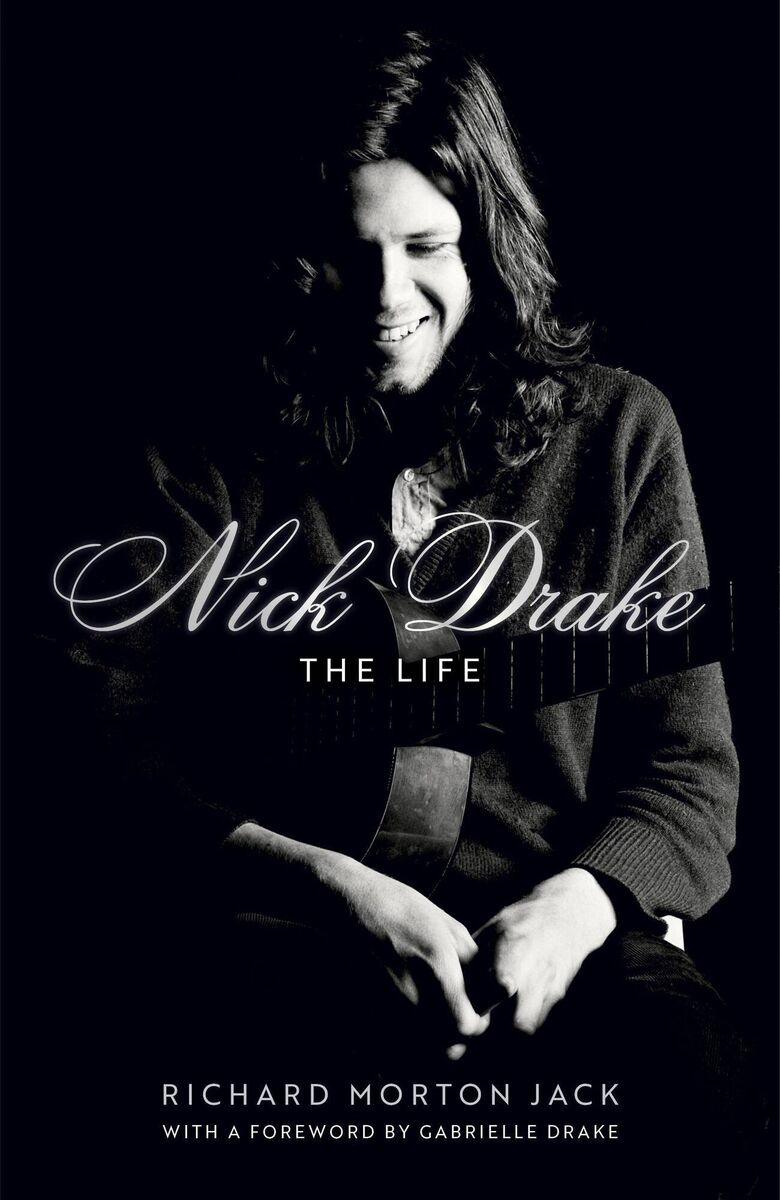Book Review: a look at the charmed and troubled life of UK musician Nick Drake

Nick Drake on the sofa. Reproduced by permission of Bryter Music and The Estate Of Nick Drake.
- Nick Drake: The Life
- Richard Morton Jack
- John Murray, £25
After completing his secondary education in 1966, Nick Drake’s final school report from Marlborough College concluded that ‘everyone has liked him, though few have really known him’. Housemaster Dennis Silk’s assessment of his teenage student can maybe also be applied to the rest of the musician’s short life: fifty odd years since his death, we still know nothing of substance about Nick Drake.
Between 1969 and 1972 he released three intriguing, folk-infused albums that are characterised by his unique, acoustic-led sound, odd guitar tunings and unusual time signatures. His lyrical style — into which much has been read — veers from the florid and dreamy to the introspective and resigned. Elusive and enigmatic, he died in 1974 having played a mere handful of live shows: he gave no interviews of note, didn’t promote his records and rarely, if ever, featured on radio or television.
It’s no surprise, then, that Nick Drake’s audience throughout his career was a select one: he sold less than 20,000 albums in his lifetime. But those who loved his work adored it: it’s just that there were never enough of them to sate the ambitions he’d set for himself. Indeed, it wasn’t until well after his death that he ceased to be just a recurring footnote in modern British music history. To the point where he is now regarded as a formative and pioneering writer whose influence can be heard today on a myriad of contemporary artists: Beck, David Gray, Damien Rice, and even Phoebe Bridgers among them.
Nick Drake announced himself in 1969 with an impressive debut album, , whose quaint, pastoral demeanour straddles a dark under-belly: it’s very first stanza refers to ‘a troubled cure for a troubled mind’. The only son of a British colonial family, he became more reclusive and paranoid the more the marketplace rejected him and he overdosed on prescribed painkillers after a long struggle with mental illness. He was 26.
As is often the case with those who remove themselves from the public eye, the gaps in Drake’s complicated story have consistently been filled by speculation, innuendo, and conspiracy. In tandem, the robust case for his genius — long made by Robert Smith, Peter Buck, Joe Strummer, and others — helped to posthumously pull his music in from the margins. And so published to coincide with what would have been Nick Drake’s 75th birthday, is a weighty, perceptive and timely issue.
‘This is not an authorised biography,’ begins the book’s foreword, penned by his only sibling, Gabrielle Drake, the long-time custodian of her brother’s legacy. ‘But it is true that this is the only biography of my brother than has been written with my blessing.’
As well as her imprimatur, she has also bestowed on the author exclusive access to a wealth of invaluable family archive, letters, tapes, and diaries. With key inputs also from Nick Drake’s closest creative collaborators, and the candid testimonies of a wide and varied cast of friends and acquaintances, this is easily the most comprehensive and fully-formed portrait of him to date.

Born in Burma, Nick Drake’s family relocated to a small village in the British midlands — and to no little privilege — and drips with casual allusions to English high society during the 1960s and '70s. He first started dabbling with music while at Marlborough, a private secondary school, and at which his first group, a covers band called The Perfumed Gardeners, rejects the advances of a younger student who was anxious to join them, Chris Davison, known more popularly as Chris de Burgh.
Within a matter of years, Drake fetches up unannounced in an old French colonial hotel in Marrakesh and plays an impromptu acoustic set in its dining room for The Rolling Stones, who ‘were bombed out of their minds yet clearly impressed by Nick’.
Coming in at well over 500 pages, the basic biography and critical evaluations here run in parallel with an absorbing sub-text in which a complex relationship unfolds between devoted parents and a troubled child. The basis of which is captured in the series of remarkable letters to the singer over a 10-year period from his father and mother, Rodney and Molly. The quality of the writing throughout that correspondence, and the candour at its heart, gives an edge that lifts it far beyond the realm of standard biography.
The final act, in which Drake is disintegrating physically and mentally, is especially difficult going: he recorded his third and final album, , in 1971 while in the throes of a full breakdown. ‘His desire for company and inability to communicate made for a painful combination,’ writes Richard Morton Jack of a performer who saw a connection with youth and the disaffected as his work’s primary purpose. With those closest to him forging careers and relationships — births, marriages, and break-ups — Drake lapses deeper into depression, static.
The regular letters from his parents go unanswered, as do the odd missives sent from fans of his work. In October, 1971, Helen from Bristol wrote to Drake having been captivated by his second elpee, . That letter, which he kept but to which he is unlikely to have responded, begins as follows: ‘Forgive me please for being so rude in asking, but who are you?’ In attempting an answer of his own, Morton Jack makes no inflated critical claims for his subject here. He judges Drake as neither a poet nor a philosopher but as a gifted and anguished songwriter, lost in his own work and ultimately failed by it. Neither does he resort to the standard cliché that the songwriter, who became more reclusive and paranoid the more the wider public rejected him, came alive through his songs.
Instead, he uses the unfiltered personal experiences of a large and diverse cast to build a detailed character profile, one that is often unflattering in close-up. Centrally informing that profile is a quietly remarkable diary, started by Drake’s father in March, 1972, and which is used here, for the first time, as a primary source. Meticulously maintained over several years, it tracks, in real-time, the careering of an adored son into psychosis, easily the most captivating — and uneasy — aspect of a biography that delivers far more than it might have done otherwise.
An engrossing examination of the life and work of one of British popular culture’s most charismatic but least-known personalities, comprehensively fills the many voids in Nick Drake’s story. It does its subject, his music, and his many devotees no little service and is heartily recommended.






